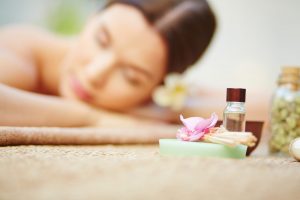
Essential oils: Does Aromatherapy Works?
A human’s sense of smell is a powerful thing. The olfactory sense is necessary for a person’s emotional and social life. It helps people determine what foods they love or hate, recognize someone, decide what scents are pleasurable or not. Sense of smell is heavily linked with memory. In fact, a human’s sense of smell has a stronger connection to memory than any other of our other senses. Certain scents can trigger memories, some of which people aren’t even aware they had. That is how powerful the olfactory sense is. Essential oils have become very common in the last few years. Its advocates claim certain aromas and blends can help ease headaches, help with nausea, sore throats, and several other health ailments suffered by humans.
What are Essential Oils?
Essential oils are plant extracts made from steaming, pressing, or crushing different parts of a plant, such as flowers, bark, or fruit. It takes many plants to produce essential oils. One pound of lavender essential oil requires over 200 pounds of lavender flowers. The result leads to capturing the plant’s compounds that create their fragrance to make the essential oils. Aromatherapy utilizes these oils as a basis for its practice, with lemon, chamomile, cedarwood, and lavender used as its most common ones.
Not all products made with plant essence are essential oils. Authentic essential oils do not contain other chemicals or fragrances.
What is Aromatherapy?
Aromatherapy is a holistic healing treatment that uses essential oils to improve people’s overall health and lifestyle. It is referred to as essential oil therapy on occasion, improving both physical and emotional health.
This practice has been around for many years: ancient cultures in Egypt, China, and others included aromatic plant elements in oils, balms, and resins and used them for medical and religious purposes.
Does Aromatherapy Work?
Despite millions of people worldwide claiming the effectiveness of essential oils, there isn’t enough research to back them up scientifically. However, more recent studies on their effects have proved promising. One study at John Hopkins University discovered that certain kinds of essential oils could potentially kill a type of Lyme bacteria more effectively than antibiotics. Despite this, results in humans appear to be still mixed.
What Are The Benefits?
Aside from scientific facts, essential oils still come with a range of benefits. Known to reduce nausea, migraines, anxiety, stress, and others:
- Alopecia (hair loss)
- Insomnia
- Low Appetite
- Depression
- Keloids
- Muscular Aches
- Menstrual and Menopausal Problems
Types of Essential Oils
- Lavender: Relieves stress.
- Tea Tree: Boosts immunity, fights infections, and can get rid of scar tissue known as keloids commonly found on body piercings.
- Peppermint: Reduces nausea, boosts energy, and facilitates digestion.
- Lemon: Reduces headaches, increases energy and mood, and helps with digestion.
- Jasmine: Helps with childbirth, libido, and depression.
- Rose: Reduces anxiety.
- Bergamot: Aids with skin conditions such as eczema.
How To Use Them
Essential oils can be used in two ways – by inhaling them or using them as topical applications.
- Inhalation: The oils evaporate into the air through a diffuser, a spray, or through steam in a bath. Inhaling essential oils incite the olfactory system, the nose, and the brain.
- Topical Applications: Absorbed through the skin and commonly used for massages, baths, and skincare products.
Before using any essential oil, a person must perform a patch test to rule any potential allergies:
- Wash your forearm and pat the area dry.
- Dab a few drops of diluted essential oil onto a patch of skin and a bandage over the patch.
- Keep the site dry for 24 hours.
If there are no signs of a rash, itchiness, or swelling, it is safe to continue using the essential oil.



